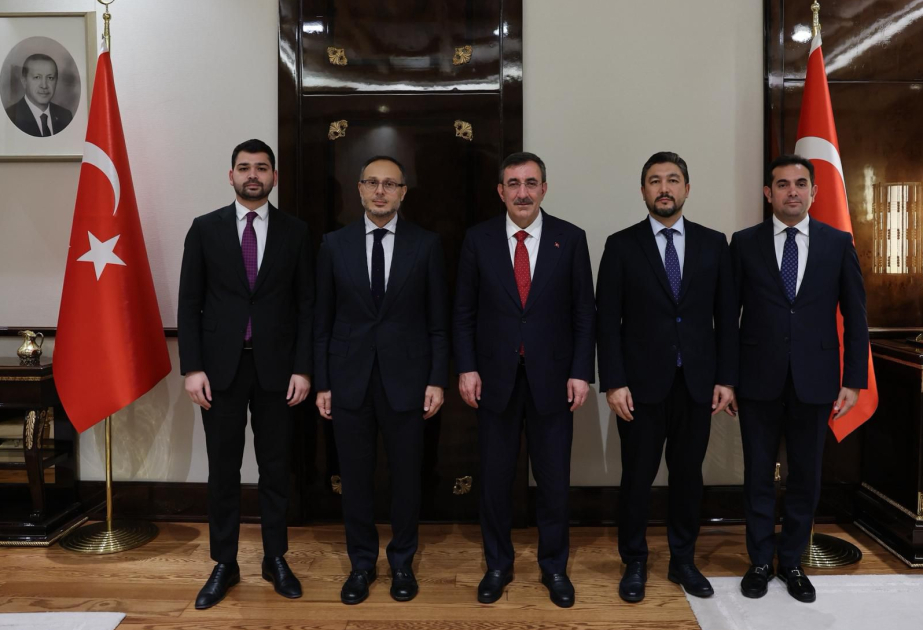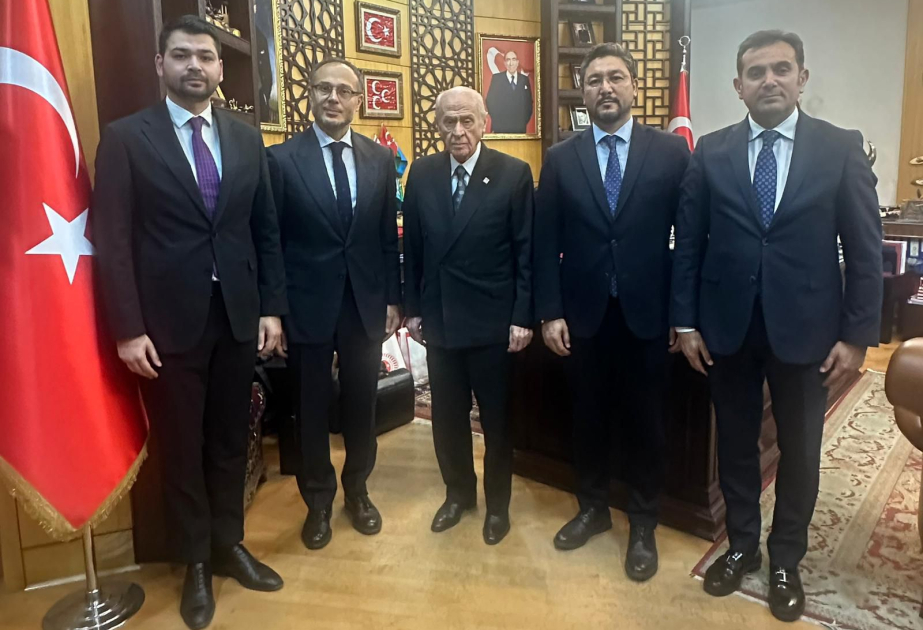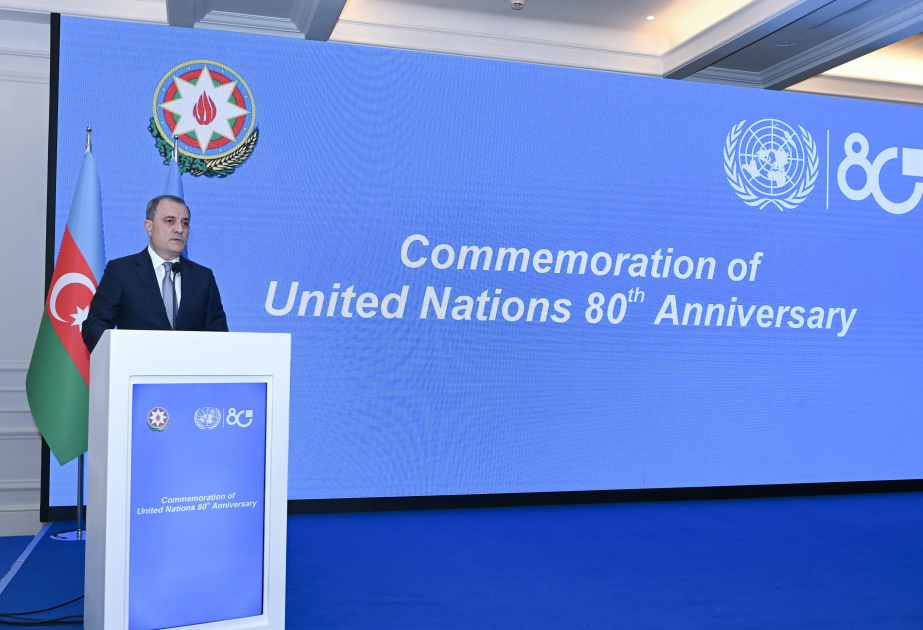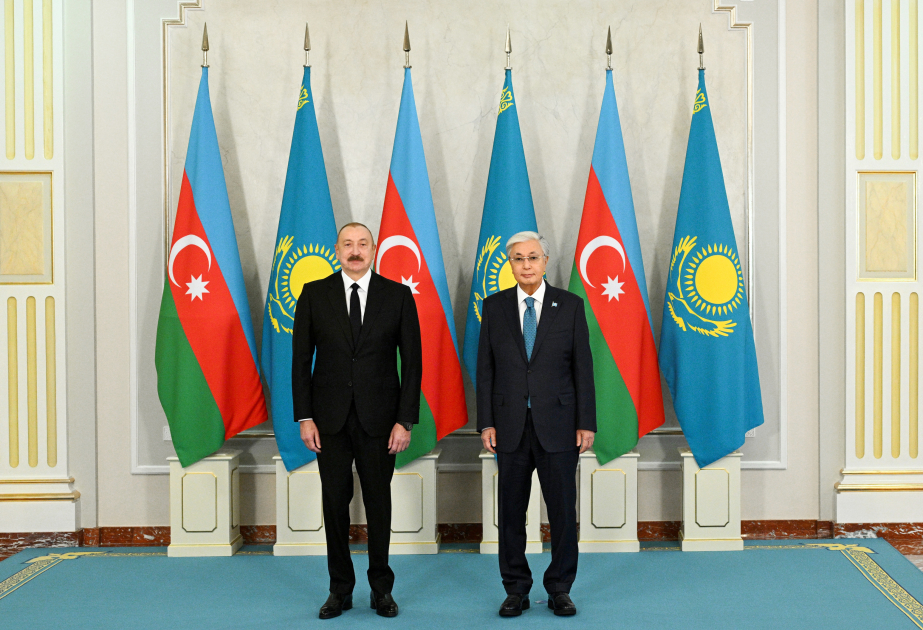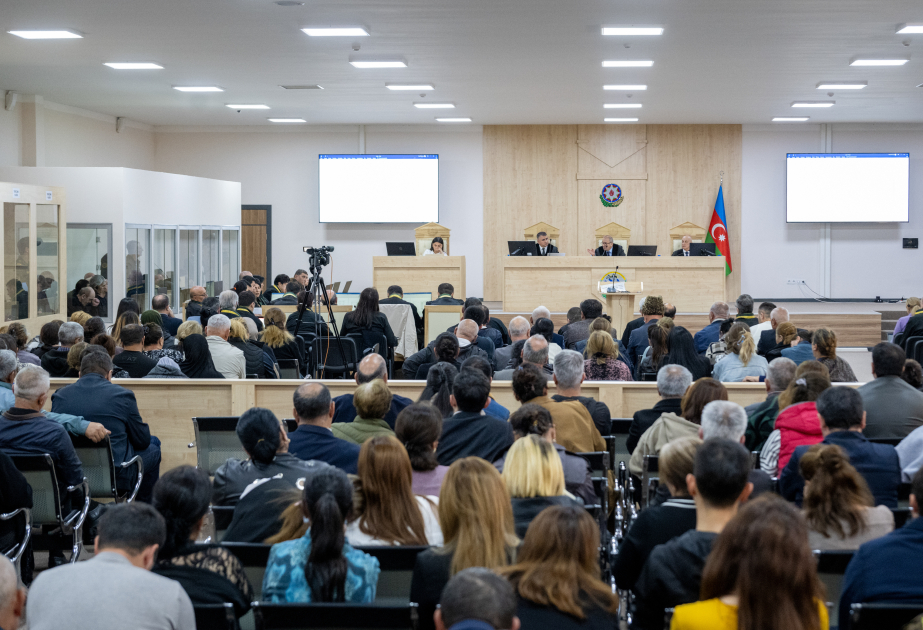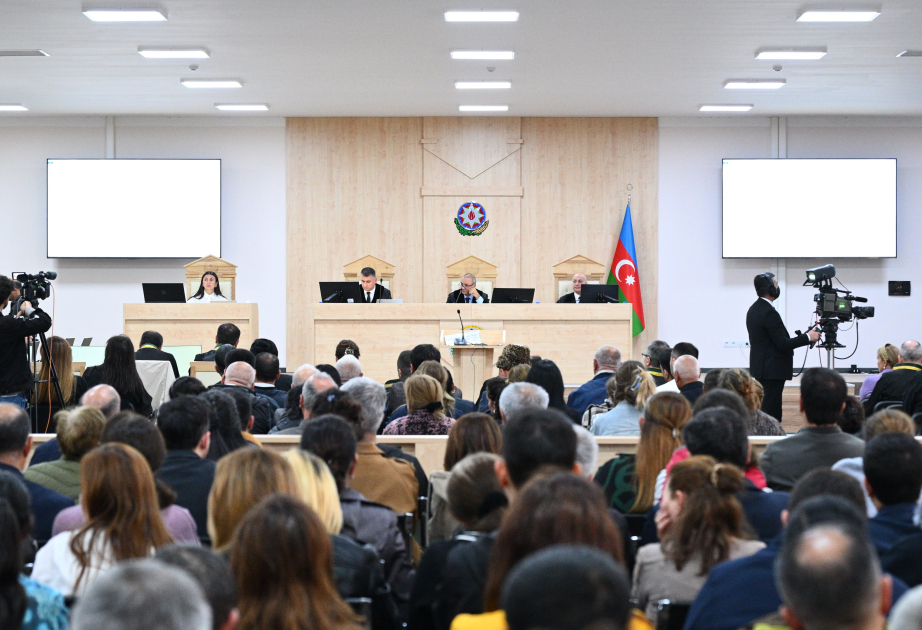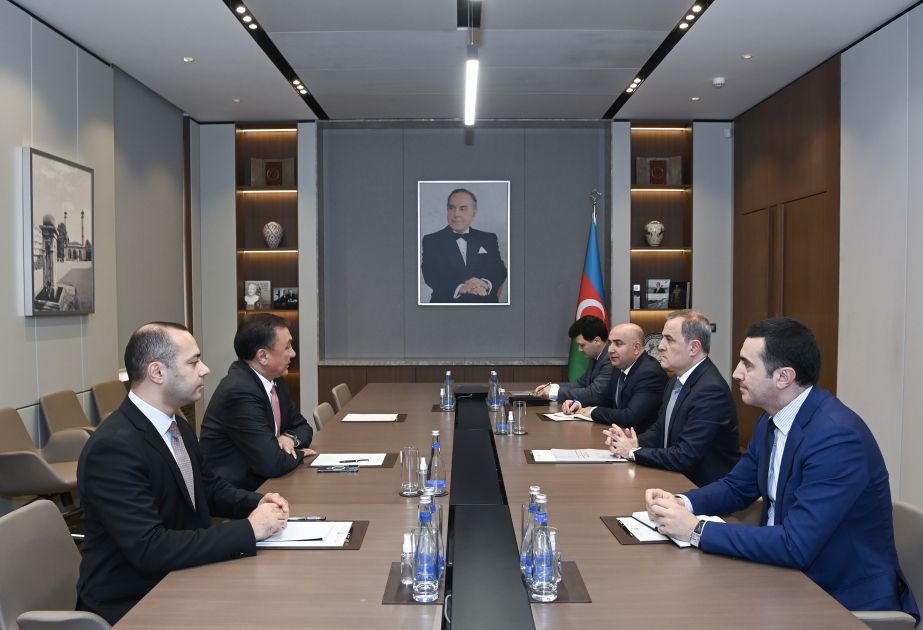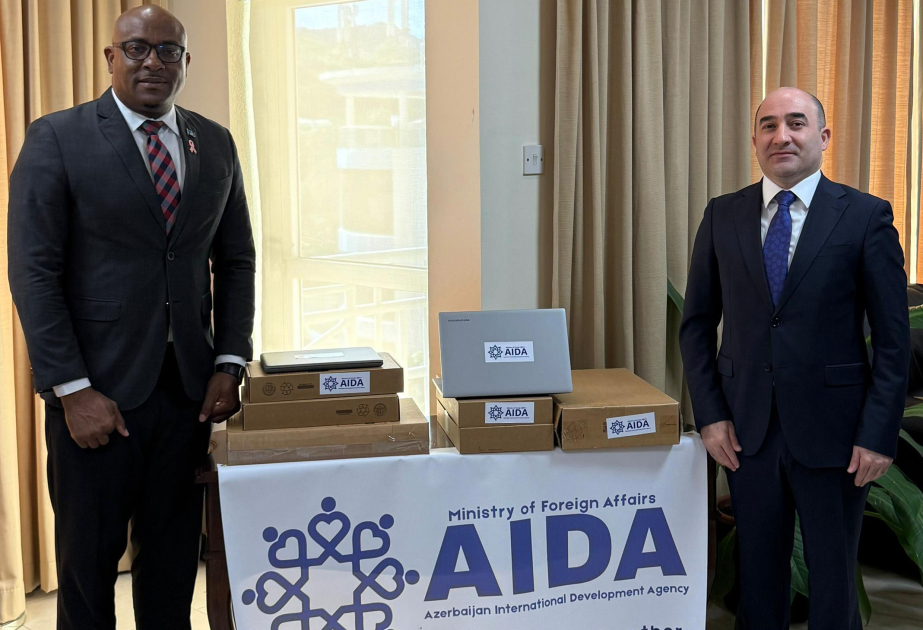Azerbaijan and the Arab World
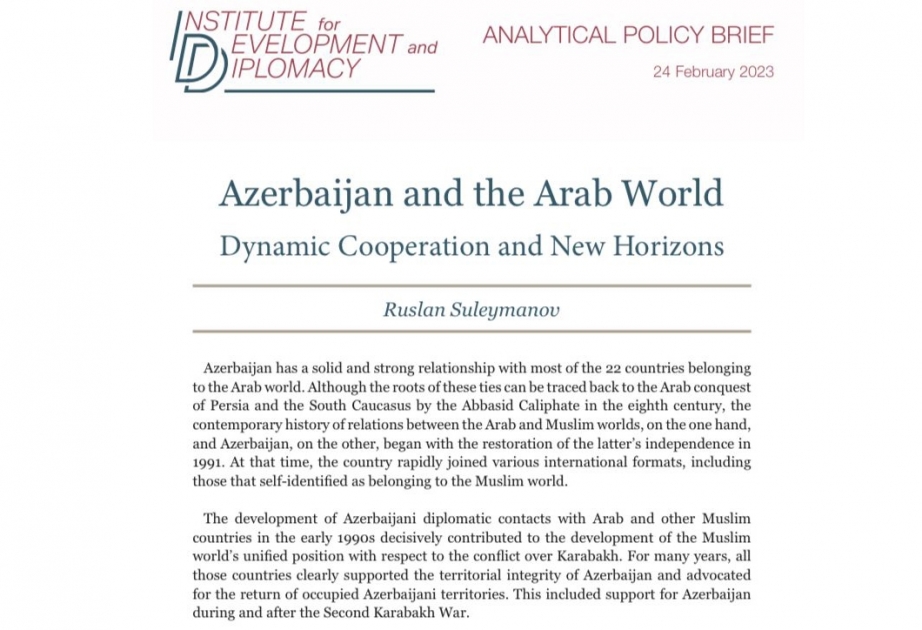
Dynamic Cooperation and New Horizons
Baku, March 9, AZERTAC
Azerbaijan has a solid and strong relationship with most of the 22 countries belonging to the Arab world. Although the roots of these ties can be traced back to the Arab conquest of Persia and the South Caucasus by the Abbasid Caliphate in the eighth century, the contemporary history of relations between the Arab and Muslim worlds, on the one hand, and Azerbaijan, on the other, began with the restoration of the latter’s independence in
1991. At that time, the country rapidly joined various international formats, including those that self-identified as belonging to the Muslim world.
The development of Azerbaijani diplomatic contacts with Arab and other Muslim countries in the early 1990s decisively contributed to the development of the Muslim world’s unified position with respect to the conflict over Karabakh. For many years, all those countries clearly supported the territorial integrity of Azerbaijan and advocated for the return of occupied Azerbaijani territories. This included support for Azerbaijan during and after the Second Karabakh War.
At the same time, Baku has tremendous potential to increase its economic interaction with the economic giants of the Arab world, including the GCC states, although at the moment the overall trade numbers remain far below what they could become with relatively little additional effort.
This is helped by the fact that Azerbaijan continues to skillfully manage not taking one-sided positions on any of the numerous conflicts and contradictions that exist within the fragmented Arab world. In other words, the fact that Baku has been able to maintain a normal level of relations with all Arab League members is at once a demonstration of diplomatic acumen and a strong argument in favor of both widening and deepening engagement.
Historical Ties
The territory of present-day Azerbaijan was conquered by the Arabs at the beginning of the eighth century. The Arran vilayet, as much of the territory was then known, was integrated into the Abbasid Caliphate for a time, before changing hands in later centuries. The Arab conquest ensured that Islam became the leading religion in Azerbaijan (and elsewhere in the Caucasus), which in turn added a significant layer of tradition and culture
to the region’s local inhabitants. The ancestors of the contemporary Azerbaijani nation, like all the others that accepted Islam, were simply called “Muslims” and contributed in various ways to the general development of Islamic culture and civilization in the Silk Road region and beyond.
The Arabic (and Islamic, in the broad sense) cultural element is present in modern Azerbaijan mainly in toponyms and in the Azerbaijani language, which borrows many words from Arabic. According to Hani el-Sisi, a professor of Arabic language and literature at the University of Cairo, about 10,000 words of the contemporary Azerbaijani language have Arabic roots. Moreover, there are many Azerbaijani Arabic-rooted words and idioms that have disappeared in countries that continue to use Arabic in the present. Interestingly, until at least the second half of the nineteenth century, a local variety of Arabic known as Shirvani Arabic was spoken in parts of what is now central and northeastern Azerbaijan (in neighboring Dagestan, this language was a regional lingua franca until the Soviet seizure of power and continued to be spoken until the 1930s when a forceful campaign of linguistic eradication was successfully completed).
“Under the Soviet Union, Islam was banned in our country for 70 years. Nevertheless, the Azerbaijanis kept their religion and passed it from generation to generation. When restoring our national traditions after gaining independence, Islam claimed its own place in Azerbaijan. Azerbaijan enjoys huge economic, scientific, and cultural potential. Our history and roots strongly tie Azerbaijan with the Muslim countries,” Heydar Aliyev noted in July 1994 during a visit to Saudi Arabia.
As noted above, the current stage in the development of Azerbaijani-Arab ties began in 1991, with formal diplomatic relations quickly being established with most of the 22 members of the Arab League (the last two were with Somalia in 2004 and with the Comoros in 2010).
Multilateral engagement with Arab and Muslim worlds also came early. In December 1991, Azerbaijan became the forty-sixth member of what is now called the Organization of Islamic Cooperation (OIC). In the same year, Baku was accepted into the Islamic World Educational, Scientific, and Cultural Organization (ISESCO). And in 2006, Azerbaijan gained observer status in the Arab League.
International cooperation with the Arab world (and with the Muslim world, in the broad sense) was beneficial for Azerbaijan throughout the conflict over Karabakh. For instance, three Muslim states (two of which were Arab League members) sat in the UN Security Council when, in 1993, it adopted the four binding resolutions on the conflict over Karabakh that inter alia demanded the unconditional withdrawal of Armenian forces from the territory of Azerbaijan (the three countries were Djibouti, Morocco, and Pakistan).
Another example of the benefits for Azerbaijan of multilateral engagement with the Arab and Muslim worlds took place in March 2008. This is when the UN General Assembly adopted resolution 62/243, titled “The Situation in the Occupied Territories of Azerbaijan.” The text reaffirmed “continued respect and support for the sovereignty and territorial integrity [of Azerbaijan] within its internationally recognized borders,” demanded the “immediate, complete, and unconditional withdrawal of all Armenian forces from all the occupied territories of Azerbaijan,” and emphasized that “no state shall render aid or assistance” to maintain the occupation of Azerbaijani territories. It was one of the strongest statements by any United Nations organ on this conflict.
This UN General Assembly resolution was adopted by a vote of 39 in favor to 7 against—with most countries either abstaining or not voting. On that occasion, Armenia was joined inter alia by France, India, Russia, and the United States in voting against a resolution whose language unambiguously reaffirmed the core principle of the international system anchored by the UN Charter. The resolution was, in fact, backed mostly by OIC members, but also by countries like Georgia, Moldova, Serbia, and Ukraine.
It is often forgotten that a critical component ensuring its passage was the passage of OIC resolution 10/11, which had been adopted during its summit in Dakar only hours before the vote in New York. Titled The Aggression of the Republic of Armenia Against the Republic of Azerbaijan,” the document “instruct[ed] the Permanent Representatives of Member States at the United Nations in New York, while voting at the UN General Assembly, to give full support to the issue of territorial integrity of the Republic of Azerbaijan.” A majority of OIC members (including a two-thirds majority of Arab League states) complied with this clause. It therefore seems unlikely that this UN General Assembly resolution would have passed without the activism of OIC members.
Ultimately, during the Second Karabakh War, none of the Arab League states questioned the validity of Azerbaijan’s Operation Iron Fist, despite the presence of a powerful Armenian minorities in countries like Egypt, Lebanon, and Syria.
At the same time, it is important to emphasize that Baku never sought to politicize Islam in the context of the conflict over Karabakh, much less to present the underlying Armenia-Azerbaijan conflict as a religious dispute. As Altay Goyushov of the Baku Research Institute has put it, “the utmost priority was not using Islam for the purposes of war.”
Economic Relations: Huge Prospects, Modest Reality
The specificity of economic relations between Azerbaijan and the countries of the Arab world lies in the fact that all sides have huge potential for increasing bilateral and multilateral cooperation. It is worth recalling that the largest share in the foreign trade of Arab countries is with the outside, non-Arab world. According to the World Bank, the volume of pan-Arab trade does not exceed even 10 percent.
For Baku, this is especially relevant, given the transformation of Azerbaijan into an international connectivity hub located at the intersection of some of the most strategic transportation corridors in the world, the significance of which has only further increased in light of the Russia-Ukraine war.
Nevertheless, the volume of trade in Azerbaijan with even with the largest Arab countries, including the Gulf countries, remain very modest. In 2021, the total volume of trade between Azerbaijan and all Arab states amounted to $801,6 million. The best results were achieved with the following states: Tunisia ($579,8 million), the UAE ($50,4 million), Egypt ($42,4 million), Saudi Arabia ($27 million), and Iraq ($23,4 million). In fact, trade with Arab countries in 2021 amounted to only 2.4 percent of Azerbaijan’s total foreign trade ($33,9 billion).
According to the structure of foreign trade, Azerbaijan’s most active area of economic cooperation with the Arab world is developing in areas such as agriculture, light industry, machine tools, pharmaceuticals, and, most recently, renewable energy.
However, the economic partnership of Baku and the Arab states has been gaining momentum in recent years.
For instance, trade between Azerbaijan and the UAE has increased three-fold over the past five years, up 270 percent. One of the main reasons for this upswing is the fact that the two countries have begun to expand the scope of their trade relations, moving into areas such as renewable and environmentally-friendly energy. Moreover, from the UAE’s point of view, Azerbaijan is a gateway to the markets of Eastern Europe. UAE’s Minister of State for Foreign Trade, Thani bin Ahmed Al Zeyoudi, put it this way earlier this month: “the significant rise in the foreign trade exchange comes in light of the increase in investments, cooperation, and exchanging experiences.”
In this sense, the visit of the President Ilham Aliyev to the United Arab Emirates in January 2023 was of particular importance. Speaking at the opening ceremony of Abu Dhabi Sustainability Week, Azerbaijan’s president pointed out that Masdar, one of the world’s largest renewable energy companies, and Azerbaijan’s national energy company SOCAR signed an agreement to develop 4 gigawatts of wind and solar power plants in Azerbaijan. “It is only a short-term project, and mid-term projects will increase the volume to 10 gigawatts. And this is absolutely doable, and we have a roadmap for that. This project alone, in cooperation with Masdar, will transform Azerbaijan into a significant source of green energy exports,” Aliyev said.
The Azerbaijani leader added that documents signed by Azerbaijan with several international clean energy companies will allow the country to produce up to 22 gigawatts of wind and solar energy. He emphasized the UAE’s role in the development of the energy potential of liberated Karabakh: “Twenty-seven gigawatts of wind and solar onshore, [including] 10 gigawatts of wind and solar energy in the territories liberated during the Patriotic War of 2020.” Aliyev also referred to “157 gigawatts of wind energy in the Azerbaijani sector of the Caspian Sea.” In total, he concluded, this amounts to “almost 200 gigawatts of potential. Of course, we need to have enough export routes. And, of course, to implement all these projects in stages.” But as my IDD colleague Damjan Krnjević Mišković has written, “Aliyev keeps his word and Aliyev does not bluff”—in other words, the likelihood that these projects will be implemented in the time ahead is quite high, indeed.
It is also worth mentioning that in June 2022, the chief investment officer of Saudi Arabia’s ACWA Power, Clive Turton, stated that his company is ready to work with Azerbaijan on decarbonization projects. “The Karabakh region has great potential both in the field of installing solar and wind power plants,” he underlined.
The development of economic contacts between Azerbaijan and Qatar is no less significant. “Nebras Power Company is open for investment in the Republic of Azerbaijan and the promotion of projects in the alternative or clean energy field, in accordance with the direction of the leadership of Azerbaijan on the construction of green cities,” Qatar’s ambassador to Baku, Faisal bin Abdullah Al-Hanzab, stressed in January 2023.
From an economic point of view, the development of cooperation between Baku and the leading GCC states looks to be the most promising way forward in the context of Azerbaijani-Arabic economic interaction.
In this regard, it is especially worth mentioning the tourist sector. Leading GCC airlines opened regular flights to and from Baku in recent years, including Air Arabia, Emirates, flydubai, flynas, Gulf Air, Jazeera Airlines, Kuwait Airways, Qatar Airways, SalamAir, and so on. It is generally recognized that Azerbaijan has become a newfound center of attraction for tourists from all over the Arab world—despite the COVID-induced decline in the tourist boom—and particularly from the GCC states.
In 2019, 3.1 million tourists visited Azerbaijan from various countries, with about 9 percent originating from the Arab world, namely 290,600. Most of them were from GCC countries: Saudi Arabia (107,230), the UAE (68,346), Kuwait (30,303), Qatar (10,472), and Bahrain (8,104). In 2020-2021, these numbers significantly declined due to the restrictions imposed in response to COVID-19.
However, in 2022, the tourist flow to Azerbaijan again began to grow sharply—it doubled in comparison with 2021, namely from 790,000 to 1.6 million visitors. It is noteworthy that, compared with 2021, the number of people who arrived from GCC countries more than doubled, amounting to 357,900 people (this represents about 22 percent of the total number of visitors to the country). Thus, in comparison with 2021, the number of tourists that arrived from Oman increased 20.4 times, from Saudi Arabia 10.9 times, from Kuwait 9.9 times, and from the UAE 2.4 times.
These figures are expected to be even higher in 2023. For example, in January 2023, Azerbaijan was already visited by 119,100 people, which is 1.6 times more than in the same month in 2022. Suffice it to say that 3.2 percent of these were tourists from the UAE, 2.1 percent from Kuwait, and 1.8 percent from Saudi Arabia.
Maintaining a Stable Balance in an Unstable Region
One of the distinguishing features of Azerbaijan in its relationship with the Arab world can be termed “skillful maneuvering.” Baku has increased its engagement in the region while maintaining a balance between various Arab states whose relations are marked by tensions. Thus, for example, Baku is content with its qualitative relations with both Algeria and Morocco, notwithstanding longstanding tensions that further deteriorated in 2021.
Also, Azerbaijan has managed to stay above the diplomatic fray in the conflicts over Libya, Syria, and Yemen—all of which are civil wars whose various factions are backed and armed by different Arab (as well as non-Arab) states. Baku also managed to avoid taking a side in the tensions between Qatar and some of its fellow GCC countries (notably Saudi Arabia and the UAE) as well as Egypt, which lasted from June 2017 to January 2021.
In this sense, Aliyev’s attendance at the November 2022 Arab League Summit in Algiers was very significant. “We pay a special importance to bilateral cooperation with the members of Arab League, and we highly value the mutual support and solidarity between us. Azerbaijan is a country which also suffered like Algeria from occupation for 30 years. Our lands were occupied by Armenia, and during all these years of occupation we always felt the support of our Arab brothers, we felt the support of member states of the Organization of Islamic States,” Aliyev stressed in his address on that occasion.
The role of Azerbaijan is also important in connection with its strong relations with countries such as Türkiye and Israel. In this sense, Baku in the future can play the role of a kind of bridge and an intermediary between Ankara, Tel Aviv, and a number of Arab and Muslim countries. Consider how Aliyev framed this aspect of Azerbaijani foreign policy during his address at ADA University in November 2022. “You know that Azerbaijan has played a role in the normalization of relations between Türkiye and Israel. We have also played a role in normalizing relations between Türkiye and some Arab countries. We consider this as part of our duty because if we have these
connections, we want our friends to be friends among themselves. This creates additional opportunities, strengthens security and stability, and has more economic benefits.”
At the same time, it is important to emphasize that, as noted above, Baku does not seek to politicize the theme of Islam in the conduct of its foreign policy or in its domestic affairs. “Islam should not interfere in political life. We do not understand when somebody talks about political Islam. This is not common in Azerbaijan. One of our advantages as an independent country in this geography, and one of our achievements, is that we have managed to strengthen the secular character of our society [while], at the same time, [we have done so] with full respect for the religious feelings of all our citizens,” Aliyev pointed out during the same speech at ADA University.
In parallel with this, the maintenance of close contacts with the Arab countries is, among other things, a course of action that Azerbaijan continues to pursue in the context of the difficult, ongoing peace process with Armenia and rising tensions with its ally Iran. In this sense, we can mention the offer to mediate made by the President of Egypt Abdel Fattah El-Sisi during his visits to Baku and Yerevan in January 2023.
Azerbaijani Diplomacy and the Arab World
Today, Azerbaijan has a diplomatic mission in ten Arab countries: Algeria, Egypt, Iraq, Jordan, Kuwait, Lebanon, Morocco, Qatar, Saudi Arabia, and the UAE. Also, Baku has announced that it will open a representative office in Ramallah, Palestine.
Despite Azerbaijan’s successful diplomatic outreach to the Arab world, one of its most acute challenges remains the issue of adequately training its diplomatic personnel for service in Arab League countries. It would surely be useful for a larger number of Azerbaijani diplomats to have knowledge of the Arabic language and of the cultural traditions of the countries in which they have been appointed to serve—not to mention gain greater understanding of the geopolitical and geo-economic features of that quite complicated part of the world.
At present, the academic study of Arabic is only offered in Azerbaijan at the Faculty of Oriental Studies of Baku State University and at the Azerbaijan Institute of Theology, but the quality of education there leaves much to be desired. There is no course of study in Arabic at the Azerbaijan University of Languages, for example, which is rather surprising. Indeed, very few Azerbaijani diplomats speak Arabic, including those serving in Arab countries, or are specialists in the very sophisticated region of the Middle East and North Africa.
This issue acquires additional acuteness due to the fact that the influence of the Armenian lobby is historically strong in a number of Arab countries, as noted above. Ethnic-Armenians are even members of parliament in several countries, including Lebanon.
Conclusion
In general, Azerbaijan’s cooperation with the Arab-Muslim world looks very dynamic and is on the upswing. With additional effort and investment in the time ahead, the payoff could be quite high. Simply put, of all Turkic nations with a majority Muslim population, Azerbaijan enjoys unique advantages, including geographic proximity to the Gulf and the rest of the Middle East as well as no legacy of imperial domination or historical grievances.
Harnessing Azerbaijan’s still largely untapped potential for engagement with the Arab world is therefore in the national interest.
Ruslan Suleymanov
Non-Resident Research Fellow at the Institute for Development and Diplomacy (IDD) of ADA University. An independent political analyst and journalist focusing on Middle East issues, he was formerly a senior correspondent for Russia’s state news agency TASS in Cairo. The views and opinions expressed herein are solely those of the author.
